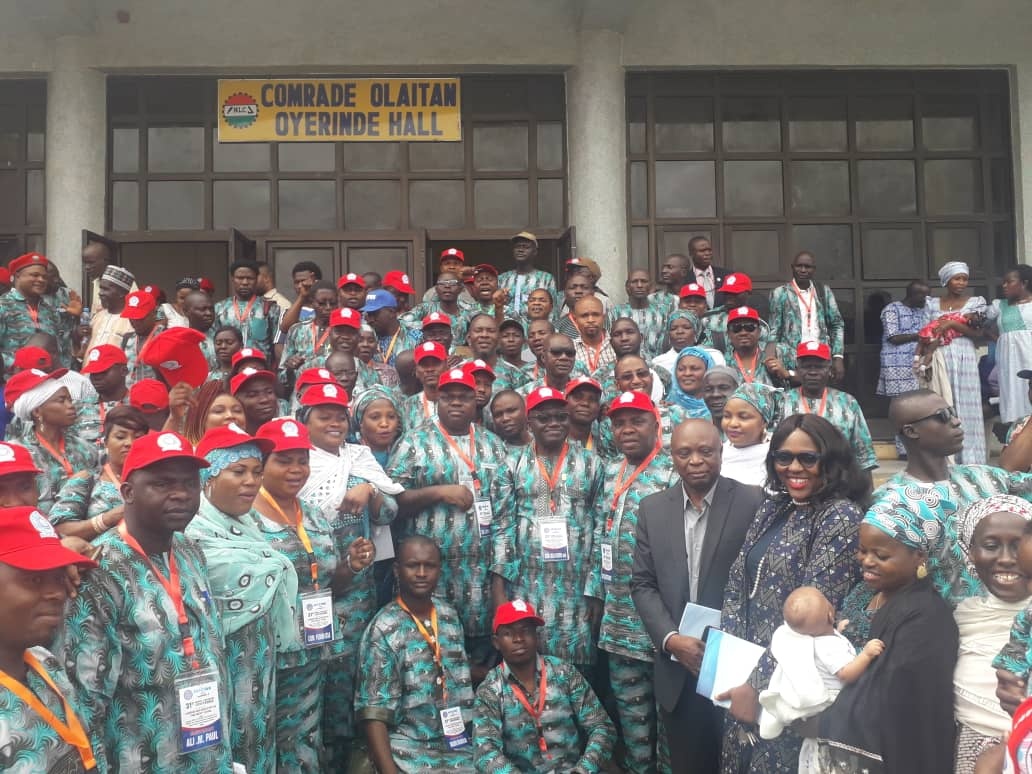Read this article in:
English
5 November, 2019Over 400 participants from the cotton, textile and garment industries including self-employed tailors and garment makers met in Abuja, 29-31 October, under the theme: Labour and industry in the next level.
The 31st education conference of the National Union of Textile, Garment and Tailoring Workers Union of Nigeria (NUTGTWN), which is affiliated to IndustriALL Global Union, evaluated current initiatives to revive the sector, especially the cotton, textile and garment (CTG) policy of the federal government of Nigeria and its implications on workers’ welfare. The policy aims to create 2.5 million jobs and revive the sector which has been in decline over the years.
NUTGTWN welcomed the CTG which will facilitate bank loans for cotton farmers from the Central Bank of Nigeria. The loans will promote and support the cultivation of cotton. Further, the Bank of Industry will also finance spinning and weaving mills. In addition, the government’s memorandum of understanding with the textile mills and the uniformed services for procurement from the local garment factories will benefit the sector.
The union said the cotton to clothes value chain approach of the CTG policy came out of extensive consultations with key stakeholders.
The conference commended the union for signing a wage agreement with employers for a minimum average wage of 45,000 Naira ($125) for the sector which is above the national minimum wage of 30,000 Naira ($83).
Alhaji Adamu Adamu, the minister of education, officially opened the conference. Other guests included Pauline Kedem Tallen, the minister of women affairs.
John Adaji president of the NUTGTWN said the conference resolved that:
“The textile and garment industry remain the key driver of sustainable jobs and development for most national economies of developing nations like ours. Indeed, for Nigeria and Africa to meet the Sustainable Development Goals 2030, especially SDG 9 dealing with industry and innovation, the continent must innovate and industrialize.”
The conference urged the government “to develop a comprehensive strategy to fully optimise the benefits of the African Continental Free Trade Area with safeguards in place to prevent and apprehend unfair trading practices such as smuggling and dumping.”
Issa Aremu, general secretary of the NUTGTWN and vice president of IndustriALL said:
“For the textile and garment industry to be competitive, the existing workforce must be trained and retrained to acquire new skills to meet the challenges of competition within the context of the Fourth Industrial Revolution.”
The conference was held with support from the Nigerian Textile Garment and Tailoring Employers Association, and facilitators were drawn from the Central Bank of Nigeria, ministry of labour and productivity, ministry of industry, trade and investment, UNIDO, FES, academia and civil society organizations.









